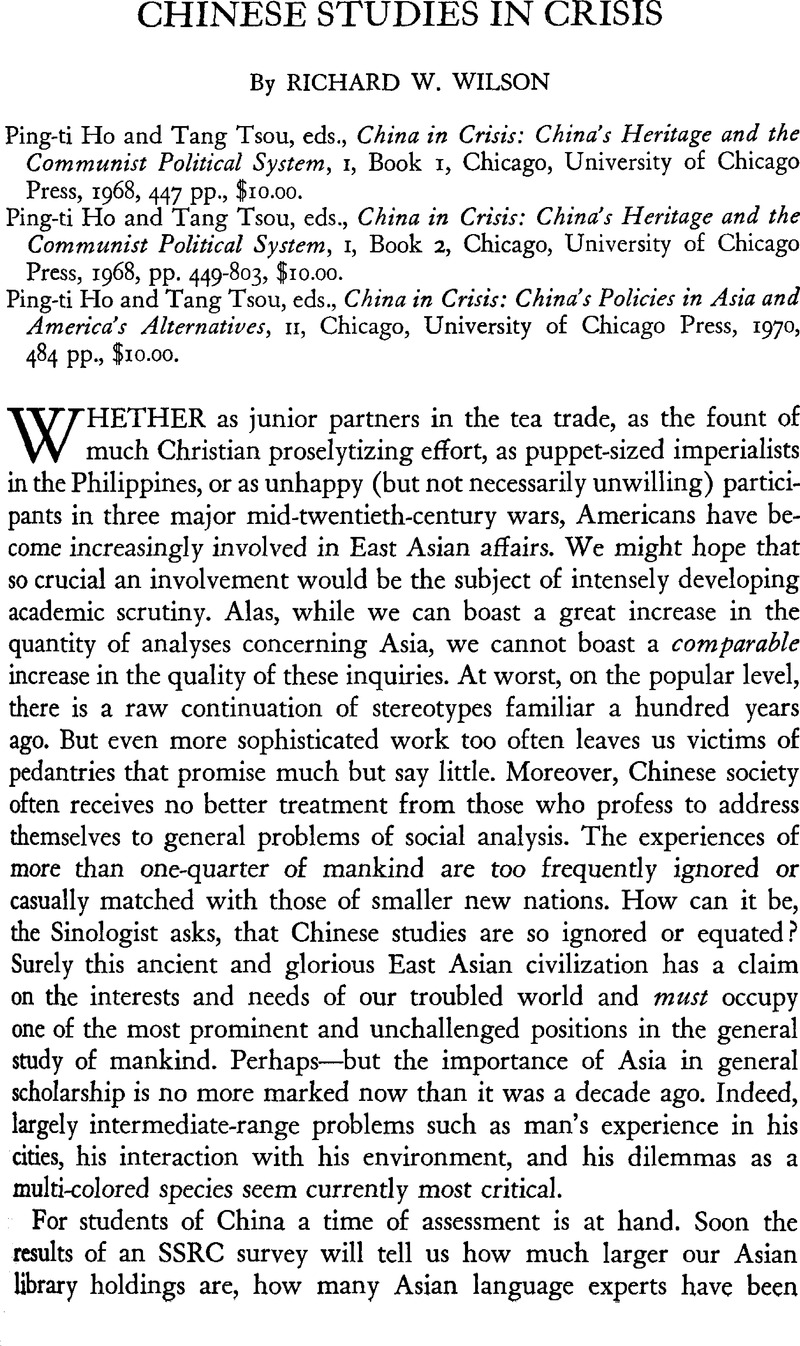Article contents
Chinese Studies in Crisis
Review products
Published online by Cambridge University Press: 18 July 2011
Abstract

- Type
- Review Articles
- Information
- Copyright
- Copyright © Trustees of Princeton University 1971
References
1 Wilbur defines militarism as “a system of organizing political power in which force is the normal arbiter in the distribution of power and in the establishment of policy” (Wilbur, 1, 1, p. 203).
2 John W. Lewis presents some interesting data on Liu Shao-ch'i that point out that Communist practice and notions of organization contradict these assumptions. Liu, he says, “perceived the importance of the integrative effects of a continuing process of struggle on the group” in which Liu noted that “inner-Party struggle is fundamentally a form of struggle and controversy over ideology and principles” (Lewis, 1, 2, p. 454).
3 Fairbank, John K. and Ssu-yu, Tseng, Ch'ing Administration (Cambridge, Mass. 1960), v, vi.Google Scholar
4 Wright, Mary C., “The Social Sciences and the Chinese Historical Record,” The Journal of Asian Studies, xx (February 1961).Google Scholar
5 From a review by Olander, Joseph D. of Doak A. Barnett, ed., Chinese Communist Politics in Action (Seattle and London 1969)Google Scholar in The Journal of Asian Studies, xxrx (February 1970), 436. Olander feels that the Barnett volume does not follow the pattern as given in the quotation. It is, perhaps, worth pointing out that dander's “inside dopester” has not been “inside” now for many years. Instead there is a breed of refugee scholar—both Chinese and Westerner—who is cut off from his emotional roots and, partly as a result, stresses those facets of learning that rely heavily on the types of expertise that were acquired before the Chinese unceremoniously closed their gates.
6 The major exception to this condition appears to be the economists. Nearly 150 pages in book 2 of volume 1 of China in Crisis are devoted to exposition and discussion of economic conditions in Communist China. With few data but with much explicit emphasis on techniques of analysis the economists engage in a most vigorous and stimulating debate.
7 From correspondence to the membership of the Association for Asian Studies, Inc., from Joel, David Steinberg, Secretary, on March 13, 1970.Google Scholar
8 Ibid.
- 4
- Cited by


